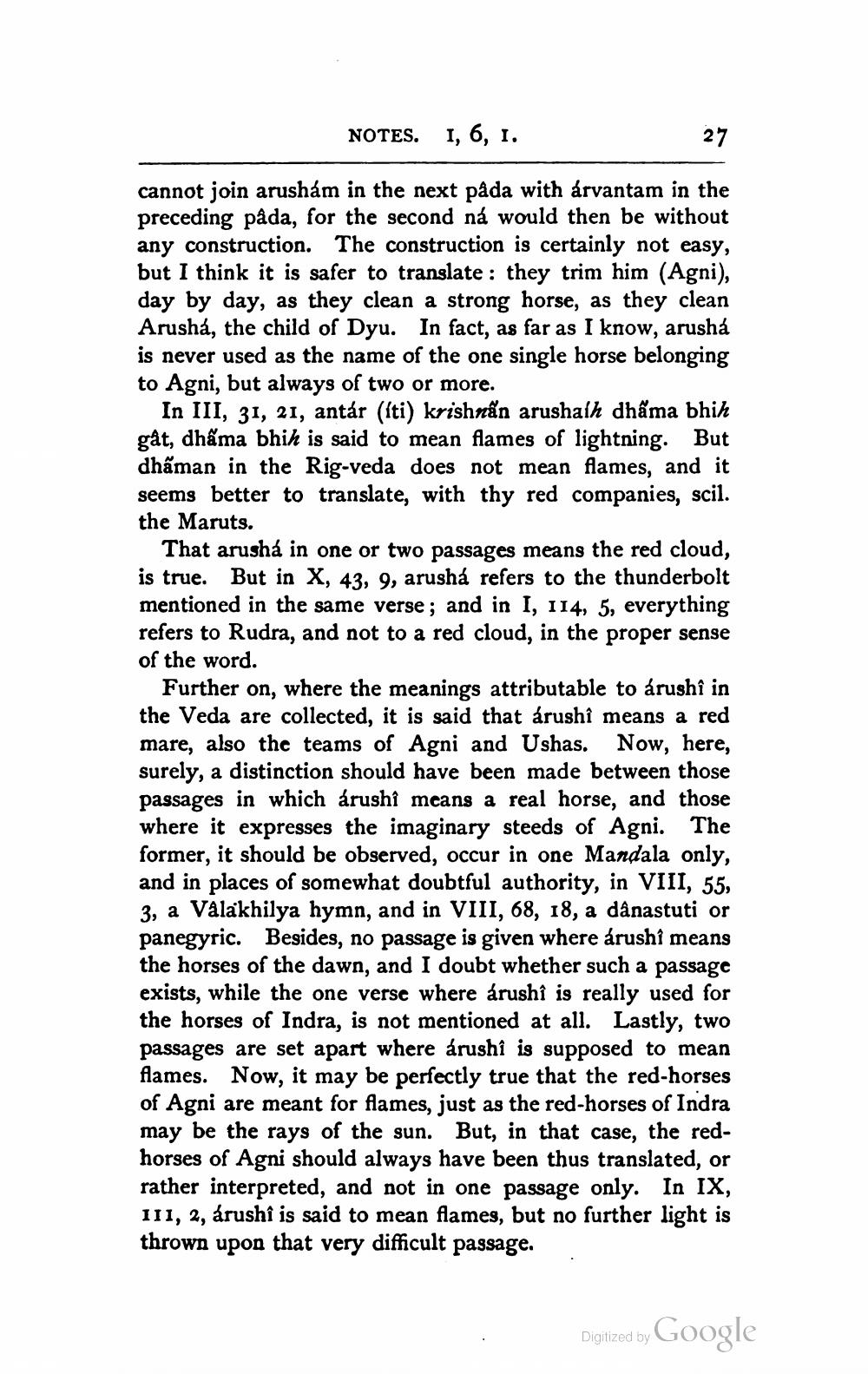________________
NOTES. I, 6, 1.
cannot join arushám in the next pada with árvantam in the preceding påda, for the second ná would then be without any construction. The construction is certainly not easy, but I think it is safer to translate : they trim him (Agni), day by day, as they clean a strong horse, as they clean Arusha, the child of Dyu. In fact, as far as I know, arusha is never used as the name of the one single horse belonging to Agni, but always of two or more.
In III, 31, 21, antár (iti) krishnan arushash dhấma bhih gåt, dhấma bhih is said to mean flames of lightning. But dhấman in the Rig-veda does not mean flames, and it seems better to translate, with thy red companies, scil. the Maruts.
That arusha in one or two passages means the red cloud, is true. But in X, 43, 9, arusha refers to the thunderbolt mentioned in the same verse; and in I, 114, 5, everything refers to Rudra, and not to a red cloud, in the proper sense of the word.
Further on, where the meanings attributable to árushî in the Veda are collected, it is said that árushî means a red mare, also the teams of Agni and Ushas. Now, here, surely, a distinction should have been made between those passages in which arushỉ mcans a real horse, and those where it expresses the imaginary steeds of Agni. The former, it should be observed, occur in one Mandala only, and in places of somewhat doubtful authority, in VIII, 55, 3, a Valakhilya hymn, and in VIII, 68, 18, a danastuti or panegyric. Besides, no passage is given where árushỉ means the horses of the dawn, and I doubt whether such a passage exists, while the one verse where árushî is really used for the horses of Indra, is not mentioned at all. Lastly, two passages are set apart where árushî is supposed to mean fames. Now, it may be perfectly true that the red-horses of Agni are meant for flames, just as the may be the rays of the sun. But, in that case, the redhorses of Agni should always have been thus translated, or rather interpreted, and not in one passage only. In IX, 111, 2, árushi is said to mean flames, but no further light is thrown upon that very difficult passage.
Digitized by Google




